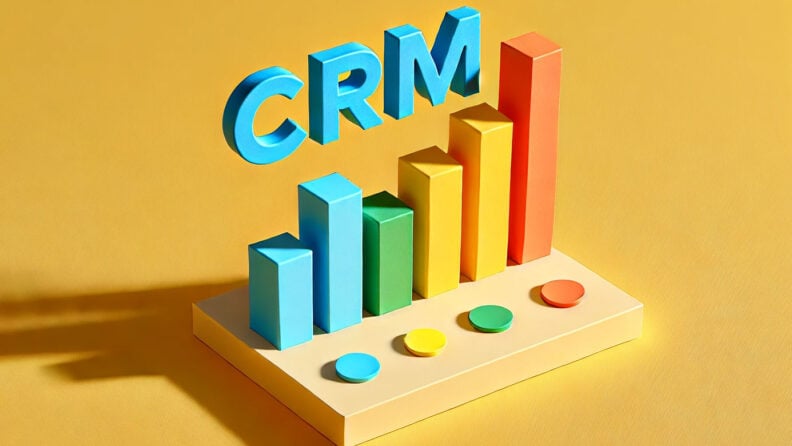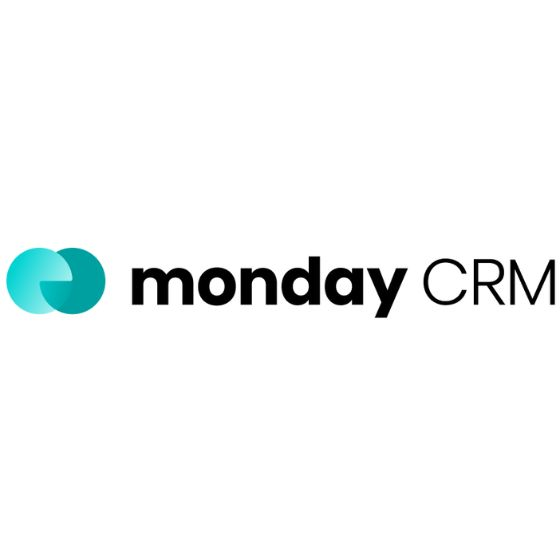Struggling to juggle customer data, streamline communication, and keep everyone aligned on a single revenue goal? That’s where CRM software can be a game-changer.
The right CRM helps you organize customer insights, automate tedious tasks, and create more personalized outreach—all while aligning your teams to boost productivity and drive revenue. These 20 statistics show just how powerful a CRM can be in transforming your business outcomes in 2025 and beyond.
CRM Usage Statistics
1. 92% of businesses acknowledge the role of CRM software in achieving their revenue goals
Is this any surprise? A CRM is the glue that holds all revenue-generating teams together, aligning data and processes for sales, marketing, customer success, and revenue operations.
2. There is a 12.6% year-on-year growth in CRM adoption
This trend is expected to continue, with the global CRM market projected to reach a staggering $80 billion by 2025, reflecting a growth rate of 13.4% from 2023.
3. 87% of businesses use cloud-based CRM platforms
Global, remote workforces require widespread access to software tools, and hosting an on-premise CRM means expensive, bulky servers and exorbitant maintenance costs. The most popular CRMs (Salesforce, HubSpot, etc) offer cloud-based, scalable access for a fraction of the price.
4. Less than 40% of CRMs have full-scale adoption in a company
While it’s clear that CRMs have a major impact on business, CRM implementation and adoption are often curtailed by ineffective change management and enablement. If the platform isn’t being used to its full potential, you are leaking revenue.
CRM in Action: Design studio CliqStudios worked with Freshworks to implement a new CRM system, dramatically improving adoption rates among the sales team and speeding up sales cycles by 35%.
5. 22% of sales professionals are unsure about what a CRM does
Proper training and clear communication are crucial for encouraging user buy-in and maximizing system utilization. If the platform isn’t user-friendly or a salesperson doesn’t understand the benefits of CRM, it simply won’t be used.
6. 32% of sales representatives spend over an hour daily on manual data entry
Manual data entry is tedious and time-consuming for sales reps, so they’ll often just skip it or leave information incomplete. This impacts CRM reporting accuracy, contact information, and makes life difficult for your RevOps team.
Look for a CRM that can automate or streamline data entry and management. This will keep the data clean and complete, so you can use advanced CRM features like analytics to make better business decisions.
CRM User Statistics
7. 91% of companies with 10 or more employees use a CRM
There are a number of CRMs dedicated exclusively to small businesses, and most CRM options have the ability to scale as your company grows.
8. 65% of SMBs adopt a CRM within their first five years
Aka the scale-up phase. This is when most businesses (at least in SaaS startup land) really take off. Choosing the right CRM is critical to supporting this growth.
9. 94% of users want contact management features in their CRM platform
This is table stakes for a CRM. At its core, it is a database of contact information that can help you store, sort, and communicate with a large number of people.
10. 88% of users want interaction tracking features in their CRM platform
This CRM feature is crucial for providing necessary context to sales, marketing, and CS teams. Housing all interaction information in one place makes outreach and troubleshooting that much easier.
-

monday CRM
Visit WebsiteThis is an aggregated rating for this tool including ratings from Crozdesk users and ratings from other sites.4.6 -

Pipedrive CRM
Visit WebsiteThis is an aggregated rating for this tool including ratings from Crozdesk users and ratings from other sites.4.3 -

Salesforce CRM
Visit WebsiteThis is an aggregated rating for this tool including ratings from Crozdesk users and ratings from other sites.4.2
CRM Benefits Statistics
11. Businesses using a CRM see a 300% increase in lead conversion rates
A CRM coupled with marketing automation makes planning, executing, and reporting on marketing campaigns much more effective. All of this data means you can personalize your outreach and set up automated nurture campaigns, leading to higher conversions.
12. 70% of sales reps believe CRM directly contributes to closing more deals
A CRM empowers sales teams with valuable customer data and insights, allowing them to personalize outreach and close deals more effectively.
13. A CRM platform can boost revenue by 29% with improved forecasting accuracy of 32%
Clean CRM data allows you to truly harness the power of your platform, giving you a clearer picture of how your business is performing and predicting future revenue.
14. 50% of teams improved their productivity by using a mobile CRM
Like the preference for cloud-based systems, mobile CRMs let your employees update information from anywhere. This is an amazing feature for large field marketing teams.
15. 74% of businesses credit CRM software with providing better access to customer data
Knowledge is power, and that’s especially true when it comes to customer data. A centralized CRM provides context for all go-to-market teams.
16. 47% of businesses acknowledge the significant impact of CRM software on customer retention rates
Retention is one of the most important metrics for recurring revenue businesses. A CRM can flag at-risk customers through a customer health dashboard, provide purchase and communication history, and streamline onboarding —all of which will help a CSM to keep the customer happy.
17. Using a CRM can increase revenue up to 245%
A CRM dramatically impacts revenue by improving processes across all GTM teams and providing vital customer and business insights.
18. 83% of SMBs find customer relationship management software effective in achieving marketing goals
This is likely due to improved targeting and lead nurturing capabilities offered by CRM systems.
19. A CRM can reduce lead costs up to 23%
Streamlined data management and automated tasks free up valuable time and resources for marketers, leading to a lower cost per lead.
20. The average ROI of CRM is $8.71 for every $1 spent.
And the increase in productivity and efficiency are priceless. To get the full ROI of a CRM, you need to invest upfront in team enablement and keep up with CRM best practices.
CRMs Are Powerful Tools For Growth
These stats paint a clear picture: a CRM is a powerful tool that fuels revenue growth.
From boosting sales performance and improving customer experience to optimizing marketing efforts and improving overall efficiency, the benefits of CRM are undeniable.
Ready For a CRM of Your Own?
We’ll match you with an advisor who will help you find the right CRM for your business.






